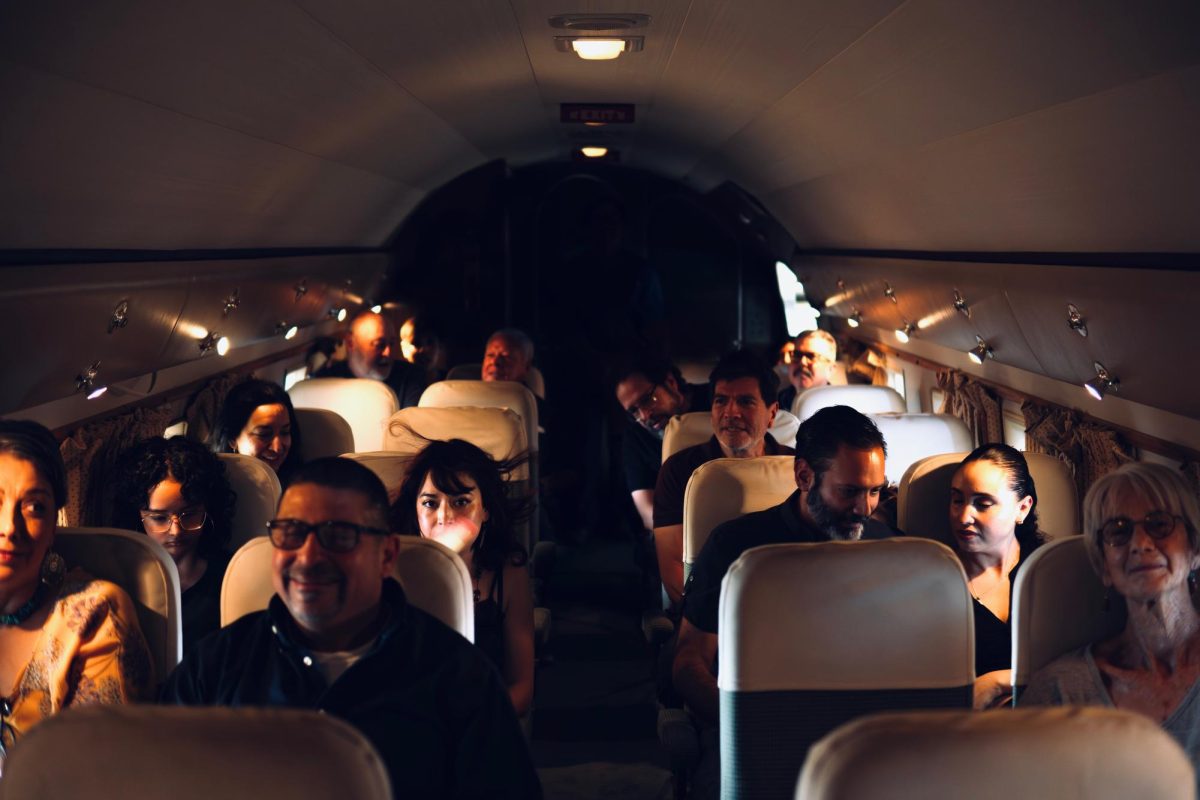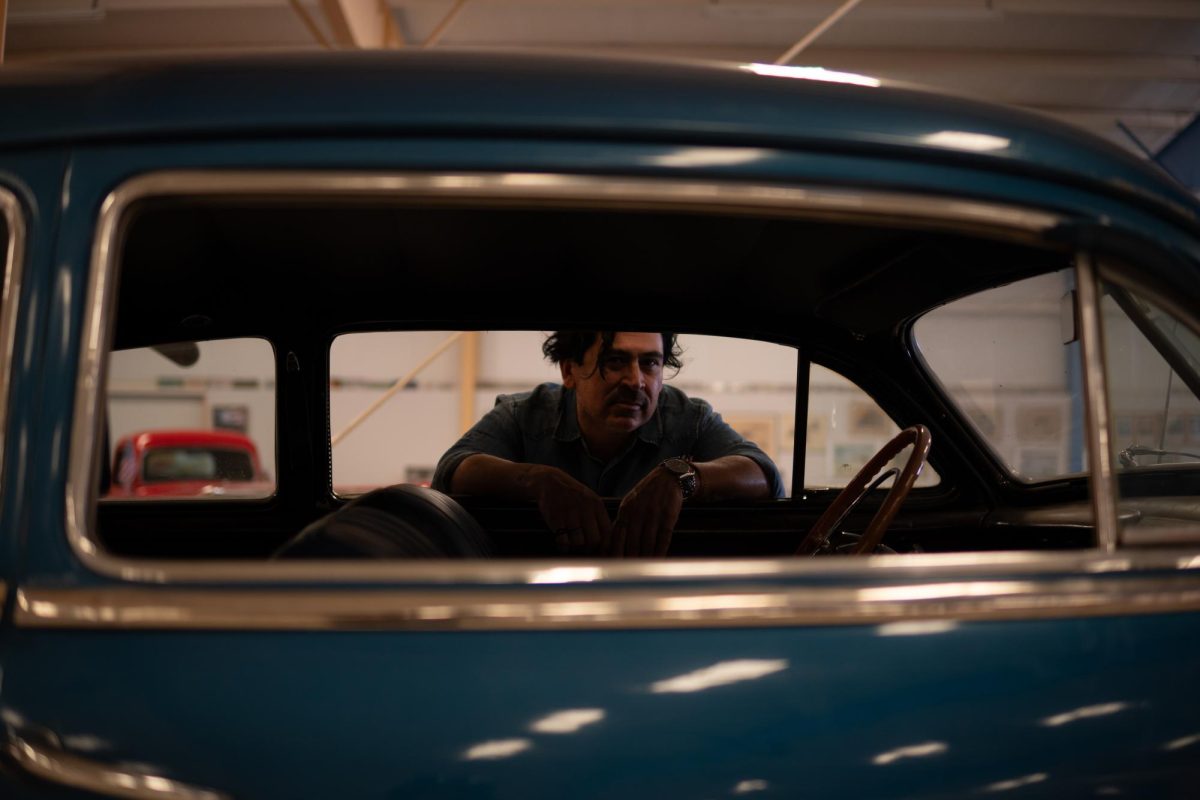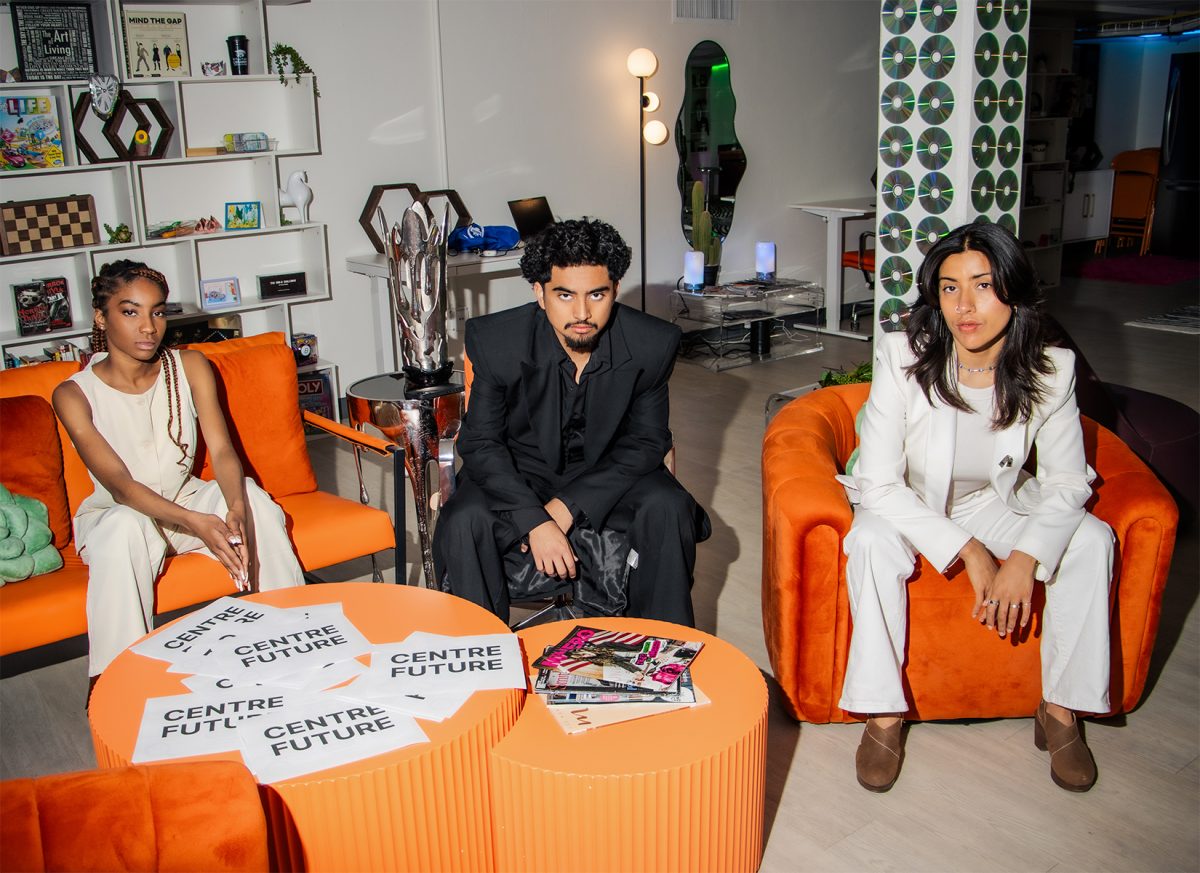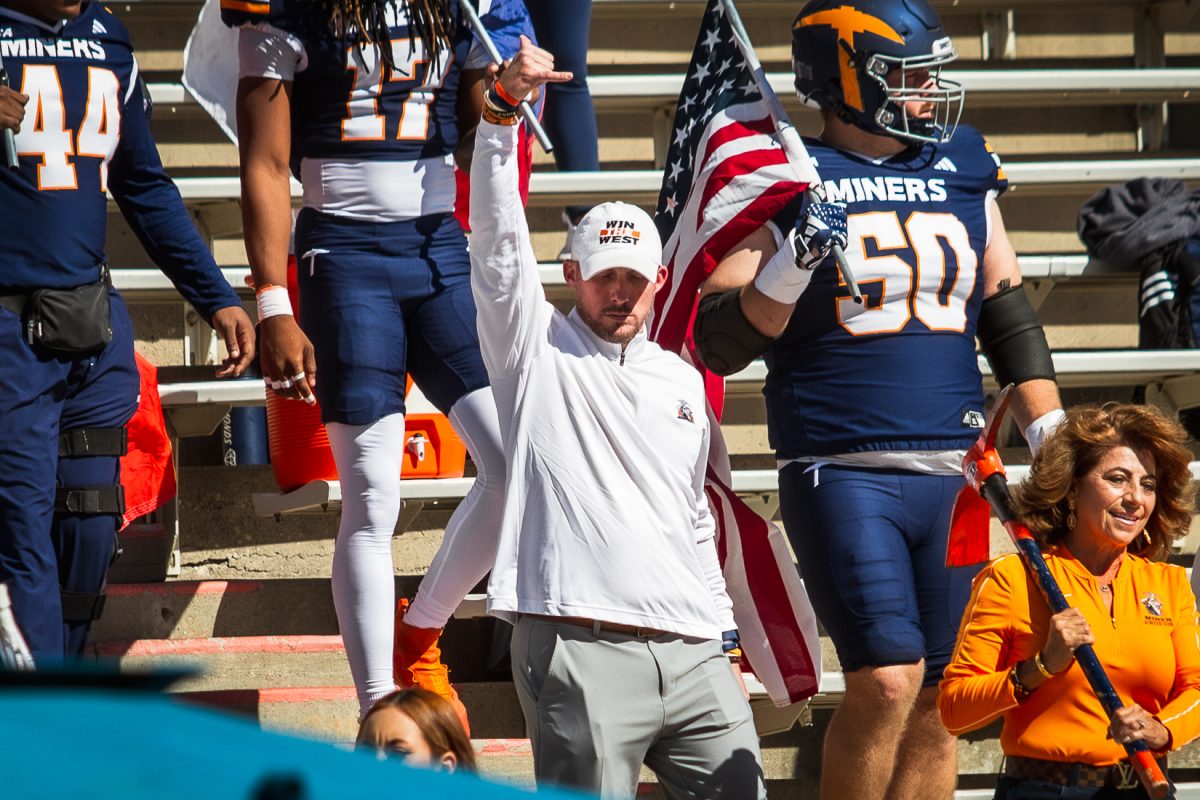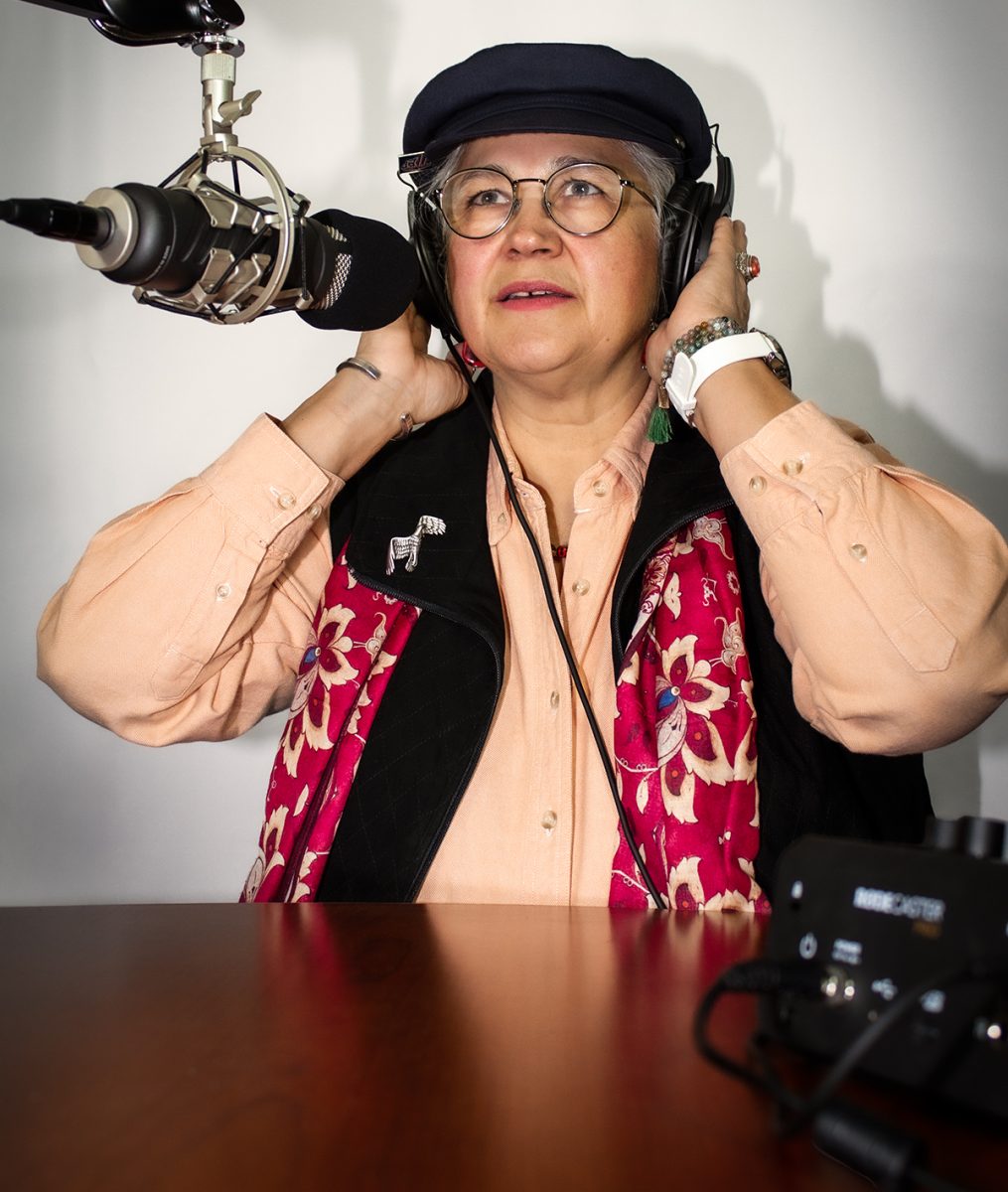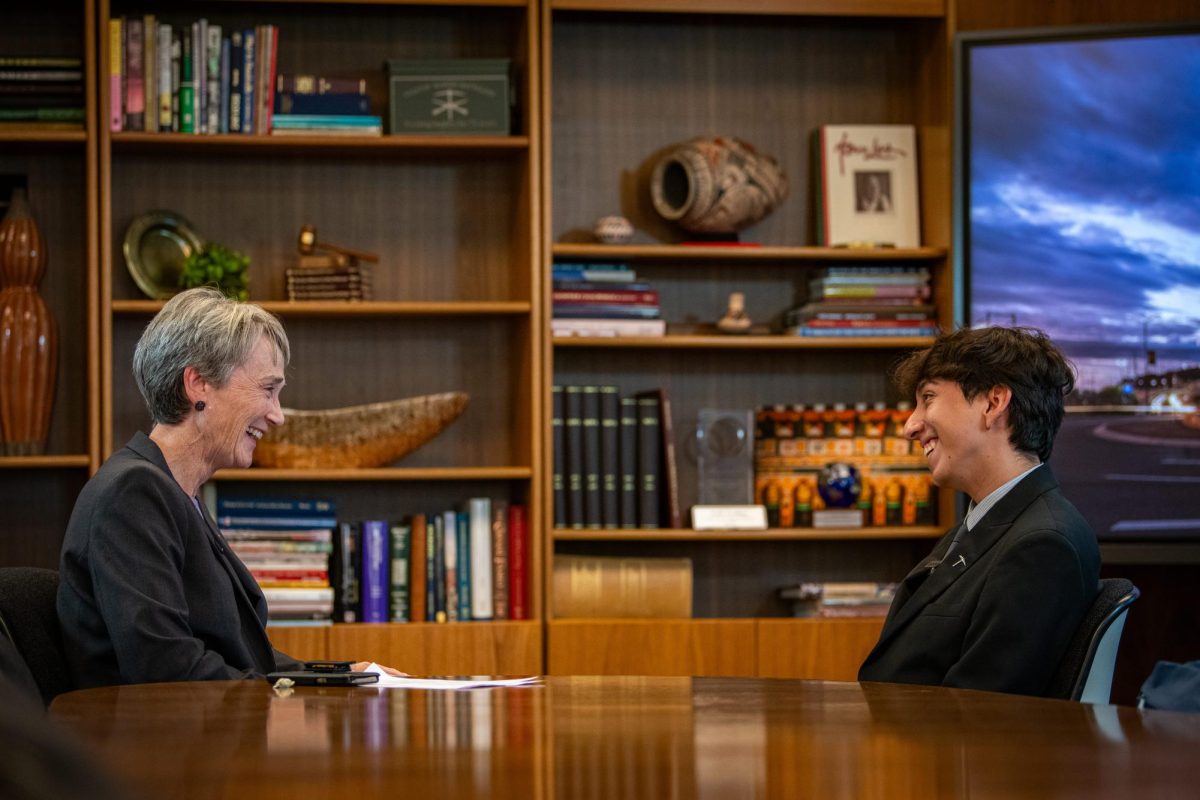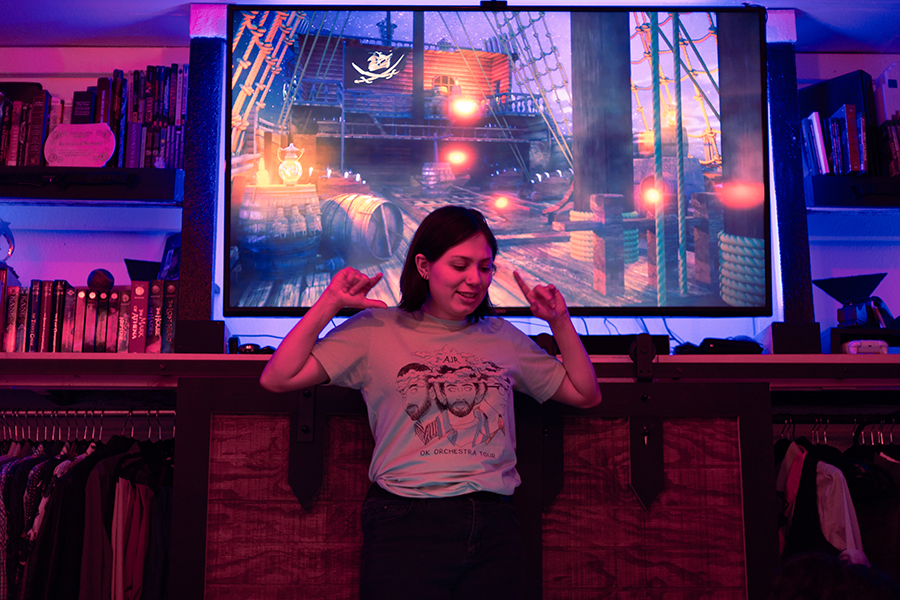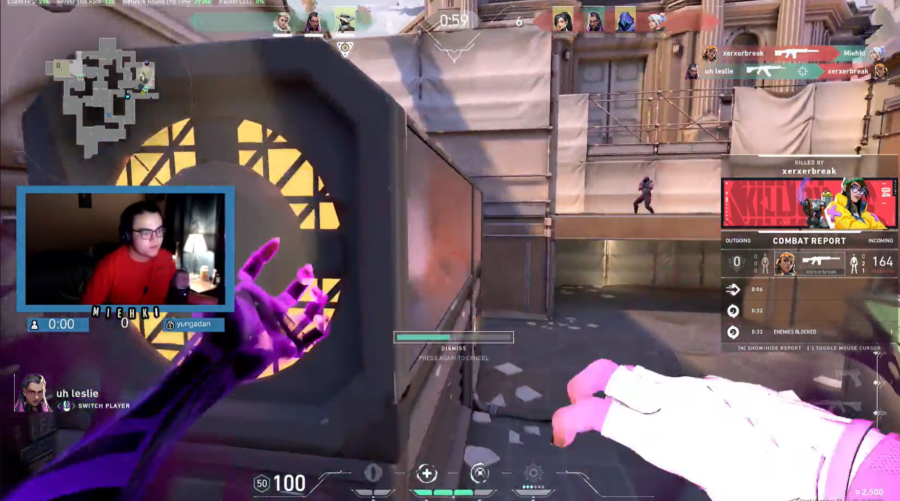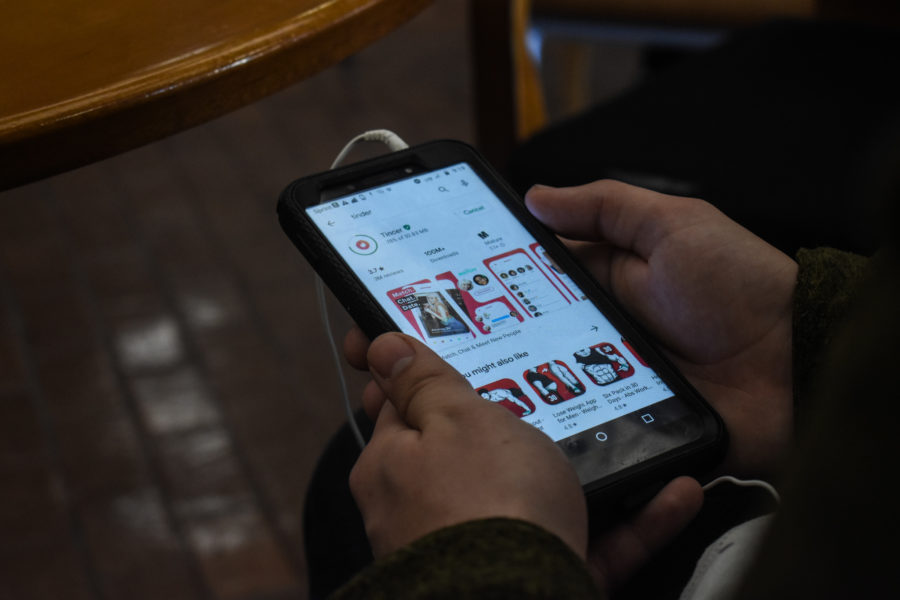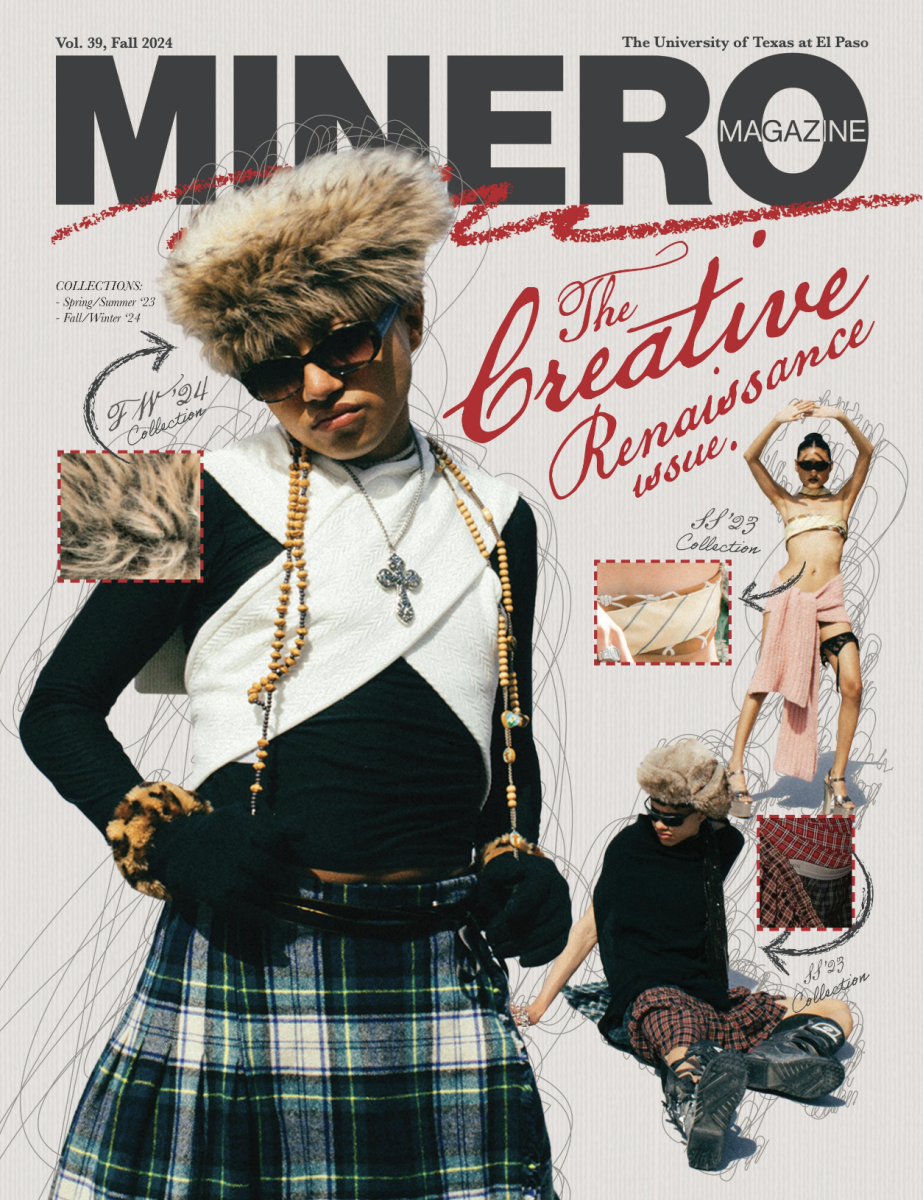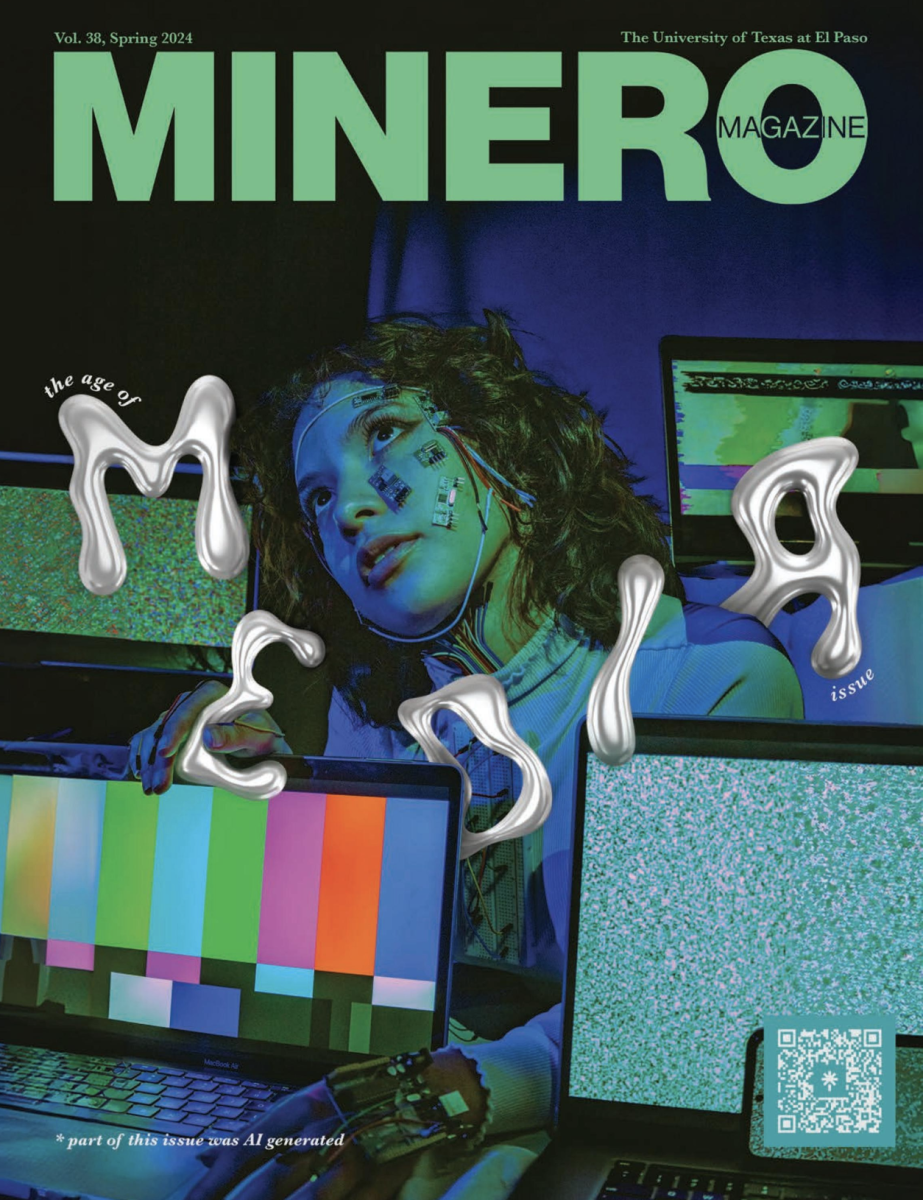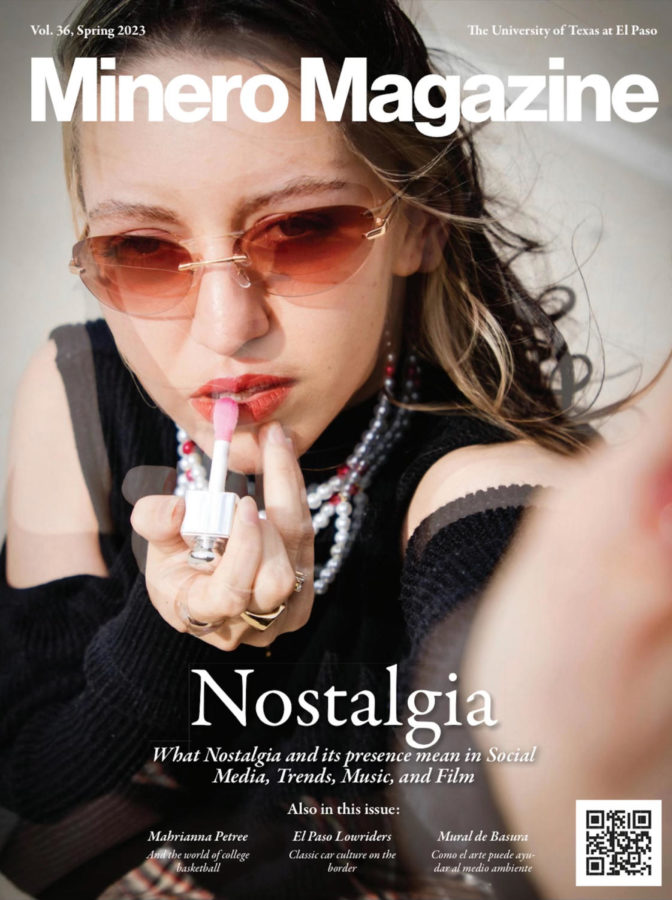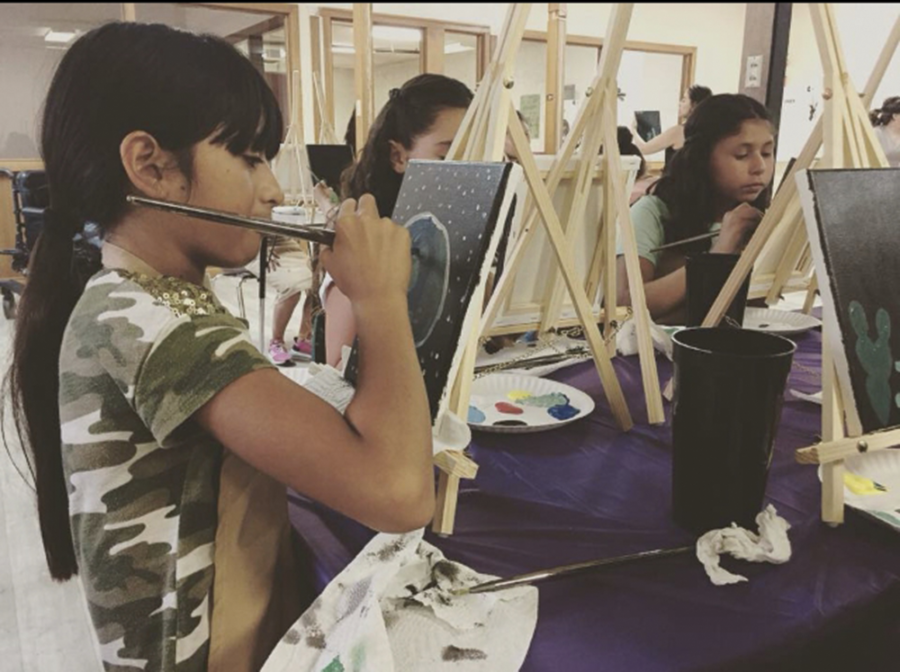Latinitas For The Win
February 28, 2019
What initially started as a class project became a prominent organization and an online magazine throughout the state of Texas with the purpose of empowering young women and getting them into male-dominant careers.
In 2002, Alicia Rascon, a then 21-year-old El Paso native, was studying Multimedia Journalism at The University of Texas at Austin. One of her classes was Latino Media Studies in where she says she learned a lot about the stereotypes of media and Latino representation.
“When I would watch TV it was really rare to see Latinas, and when I did, it always felt like she was a chola or she was getting arrested,” Rascon says. “It felt like it really didn’t reflect the real diversity of being a young Latina. We didn’t see a lot of examples in media like women getting a college education.”
As part of the class, the professor challenged the students to do a service project where Rascon and her classmates could incorporate communications and help the Latino community.
“At the time, we felt like a lot of the mainstream media and magazines weren’t really representing Latinas,” Rascon says. “We also felt that there were a lot of stereotypes out there so we really wanted to make sure that we could provide a venue where girls could express themselves, feel confident and really celebrate their culture.”
Throughout the course of the class, Rascon, alongside founder Laura Donnelly, started ‘Latinitas’ the first online magazine by and for young Latinas in Texas.
“From there we decided that we wanted to keep it going after the class ended and make it into a non-profit organization with the big focus of empowering young Latinas,” Rascon says.
So, what is Latinitas?
Latinitas is a non-profit organization focused on the empowerment of girls to innovate through media and technology, according to their website.
Jazmin Lopez, 24, is a former program coordinator for Latinitas. She says this organization changes the lives of many young girls and women not only by inspiring them to be confident and outspoken, but also by being proud of their Latina identity.
“For me, it is so important to have that connection to your culture and Latinitas provides that safe and creative space where girls can learn about Latino/a history, traditions, and art,” Lopez says.
According to Rascon, over a hundred girls get published each year for the online magazine, latinitasmagazine.org.
“One of the really neat things about the magazine is that we have contributors all across the country,” Rascon says. “We even have a young woman in London where there is a young Latina that is doing study abroad and wants to connect with our culture even though she is all the way over there.”
Those who become part of Latinitas can expect to be given the opportunity to write,, take pictures, shoot video and get published.
“My top favorite memory was when we filmed a short documentary with the girls about how Latinos and Latinas are represented in mainstream media,” Lopez says. “It was so wonderful to see them excited about interviewing Latinas about their experiences and to see them take charge of what shots we were going to do for the day. I feel that shooting the documentary made them feel, rightfully so, that their stories and perspectives matter.”
In addition to the magazine, Latinitas offers outreach throughout the year like afterschool programs, summer camps and different conferences to help young girls succeed in their emotional and academic life.
Veronica Martinez joined Latinitas in the Spring of 2016, because she needed to do service hours for a class she was taking while pursuing her undergraduate degree.
“I already knew I wanted to do my service hours with Latinitas because I already knew about their mission. I just thought it was a combination of two things I was very interested: women empowerment and media.”
When Veronica was done with her service hours, she decided to stay as an intern and was later hired as media producer.
“It is very important to me to see this organization succeed and continue doing what they are doing because I never had something like this when I was young,” Martinez said.
Veronica is now a graduate student at the University of Texas at El Paso pursuing a Masters in Communication Studies.
“My favorite memory was from the (Latinitas) 2018 summer camp. We had this program called ‘Chica Reportera’ in which the girls got in groups to do stories as reporters,” Martinez says. “They were doing some interviews during our field trip to the courthouse and me (acting as an editor) asked them to just do three interviews. The girls loved it so much that they just wanted to keep doing interviews.”
Other programs Latinitas offers include ‘College Chica’ in where girls learn about the importance of college, ‘Coding Chica’ where girls can learn about coding and ‘Healthy Chica’ where they learn from doctors and professionals the importance of living a healthy life.
Even though Martinez left her job at Latinitas as media producer to focus on her studies, she still volunteers whenever she has free time.
“For me and the staff it is all about the girls. Whenever we heard one say ‘I want to be an engineer’ or a scientist, a reporter, a film director or whatever, it made us feel that we were doing a good job,” Martinez says.
Latinitas in El Paso and the Media
Latinitas started in Austin in 2002 but it has now spread to several locations in where they offer various programs across Texas like Round Rock, San Marcos, San Antonio, and El Paso.
Isis Portillo, Executive Director of Latinitas in El Paso, says she first heard of this organization in 2010 while volunteering at the Junior Woman’s Club of El Paso. Portillo wanted to help as she encountered difficulties in her own journey to become a journalist.
“As a woman in the 90s, you really had to compete for airtime so that organization for me was perfect because I had struggled so much throughout my career to have had someone influence me,” Portillo says. “They are things that we don’t like to talk about, but it’s just the truth.”
Portillo has lived in the media atmosphere for more than 21 years working on TV, radio and marketing. She says she grew up in a time where being on TV even here in El Paso was very difficult for a woman, especially a Latina.
“A lot of the times, the Spanish TV stations bring people from México so how can you and I compete when, if we had any education in México (it) was just a little bit of elementary and the rest of our lives we’ve been here in the United States learning how to adapt to a new culture,” Portillo says. “We don’t speak English well enough for an English station. We always get criticized for our accents, or that we speak border Spanish, or that our vocabulary is not extensive enough.”
She says to want to encourage young girls and provide them with as much training as possible for them to be able to compete in jobs in the media industry.
On the other hand, Jazmin Lopez believes that misperceptions of Latinas in the media are a direct result of the lack of Latinas in decision-making positions within this field.
“We don’t have enough positive stories of women of color in mainstream media. More often than not, women of color are subjected to stereotypes in films, TV shows, and news shows. Again, this goes back to who is in charge of creating this content,” Lopez said. “Latinas are extremely underrepresented in directing and producing roles, which can only mean that their experiences are being left out or misunderstood. We need more Latinas telling their stories in mainstream media so we can take back our narrative.”
Lopez says that when it comes to STEAM fields, the issue is very similar and it starts at a young age where girls begin to question their interest in STEAM related fields.
“During my time with Latinitas, I remember hearing young girls say they were ‘too dumb’ to be good at math or science. Or they would be embarrassed to say they were interested in working in a STEAM career. We as a community need to do better and encourage our young girls to cultivate an interest in STEAM fields,” Lopez said.
Originally from California, Lopez now lives in Washington D.C. working as a lobbyist for a government affairs firm. She says that living at El Paso opened her eyes to issues faced on the border and the importance to share these stories.
“We need to empower women everywhere and give them the space, resources, and encouragement to achieve their goals,” Lopez said. “Women can do anything they set their mind to. As long as they are given the same amount of respect and opportunities as everyone else, I think women can accomplish so much. And they might teach people a thing or two.”



